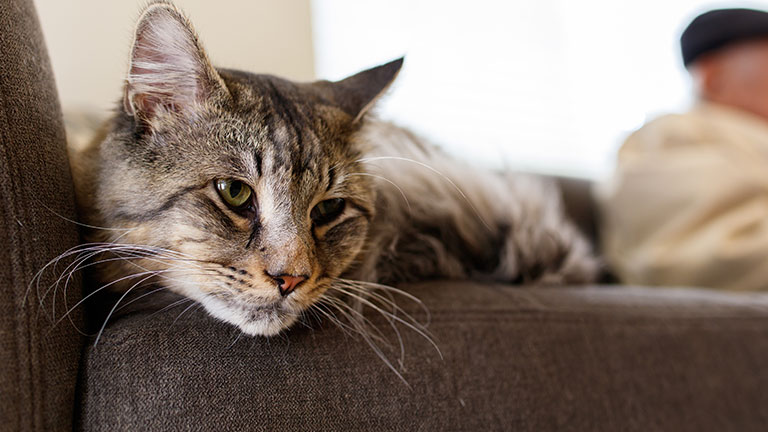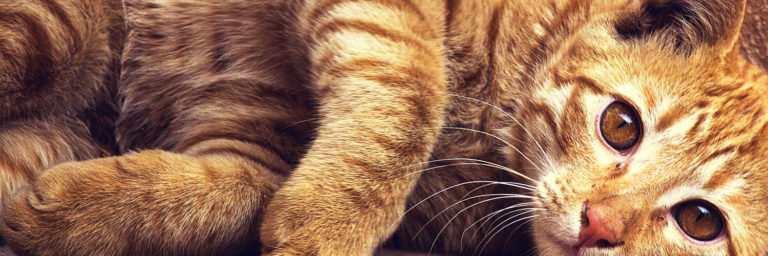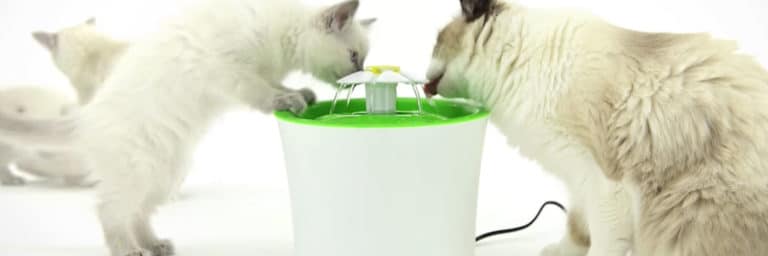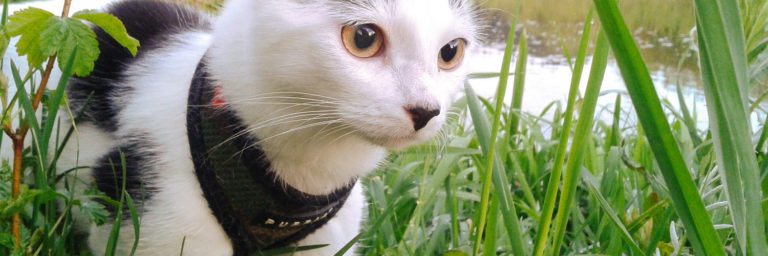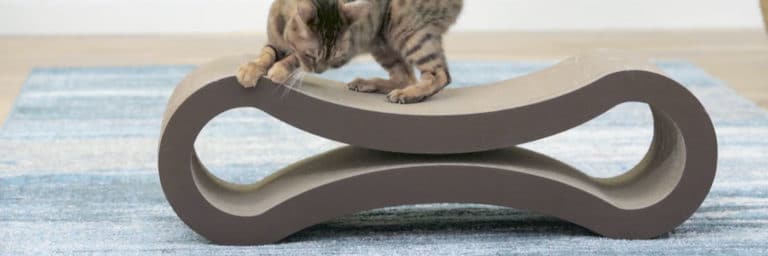Cosequin vs Dasuquin for Cats : The Best Treatment for Joint Health Issues
Contents of Article
Cosequin and Dasuquin are the same in many ways.
They’re both joint supplements made by the same company. Both are popular. Both get excellent reviews. And both of them are frequently recommended by veterinarians.
So which one is better and which is the right choice for your cat? To answer those questions, I’ve studied the ingredients in Cosequin and Dasuquin, read customer reviews, and compared the two products on price and ease of use.
The short answer is that Dasuquin appears to be the more potent of the two joint supplements. That said, Cosequin has a stronger reputation, more customer reviews, and higher rates of customer satisfaction—all at a lower price.
Given its excellent record and lower price, you may want to try Cosequin first, and if you don’t see a difference within a few months, upgrade to Dasuquin.
Let’s learn more about the active ingredients in Dasuquin and Cosequin.
To understand the differences and similarities between these two supplements, we have to understand what’s inside of them. Here’s an explanation of the ingredients in both Cosequin and Dasuquin, what those ingredients are supposed to do, and a brief summary of how well each of them works.
Glucosamine Hydrochloride
Both Cosequin and Dasuquin contain 125 mg glucosamine hydrochloride.
Glucosamine appears naturally in the body, where it serves as a precursor for glycosaminoglycans, the building blocks of cartilage. While glucosamine is clearly an essential part of joint health when it appears naturally, the verdict is still out on its value as a supplement.
Most studies on glucosamine have shown statistically insignificant benefits or none at all.
In a 2007 review of the research on glucosamine hydrochloride as a treatment for osteoarthritis in human patients, researchers concluded that “Although some subjects do report statistically significant improvement in pain and function from products combining glucosamine HCl and other agents, glucosamine HCl by itself appears to offer little benefit to those suffering from osteoarthritis.”
Glucosamine, when paired with other supplements, may be able to stimulate cartilage growth, slow cartilage deterioration, and reduce inflammation—but even then, results are inconsistent and not very promising.
A more recent two-year study of over 1,500 patients with osteoarthritis found no significant benefits from glucosamine or glucosamine and chondroitin supplementation.
Sodium Chondroitin Sulfate
Both Cosequin and Dasuquin contain 100 mg low molecular weight sodium chondroitin sulfate per dose. This compound is very commonly paired with glucosamine and, like glucosamine, is naturally found in cartilage and bone.
Sodium chondroitin sulfate helps to retain water in the cartilage, maintaining its bounce and shock absorption abilities. It may also help block the enzymes that break down cartilage, preventing further degeneration.
It’s not clear how well it works as a joint supplement. A large study conducted in 2006 found that some people with moderate-to-severe arthritis experienced significant pain relief after taking glucosamine and chondroitin together. Later studies have both confirmed and contradicted these results, leaving chondroitin’s efficacy—or lack thereof—an unsolved mystery.
Only in Dasuquin: Avocado/Soybean Unsaponifiables (ASU)
Dasuquin is standardized to contain at least 30% ASU. Avocado/soybean unsaponifiables are the portion of avocado and soybean oil that can’t saponify or turn into soap—about 1% of the total oil. These unsaponifiables are composed of many varied compounds, some of which may help to inhibit cartilage breakdown and promote cartilage repair.
Only in Cosequin: Manganese
Each dose of Cosequin has 1 mg manganese ascorbate, a naturally-occurring mineral that’s essential for bone health. Manganese deficiencies can increase cartilage damage, while supplementation has shown anti-inflammatory effects in animal and human studies.
Only in Dasuquin: Green Tea Extract
Though not mentioned in the list of active ingredients, each capsule of Dasuquin contains green tea extract. When it’s paired with epigallocatechin gallate—a major component of green tea catechins, ASU may have an enhanced ability to inhibit the action of inflammatory molecules.
How do the two compare in the areas that count?
We’ve evaluated the ingredients of Cosequin and Dasuquin, but what about how they actually work? Let’s assess both of these supplements’ performance in three key areas.
Effectiveness
Both Cosequin and Dasuquin show promise in treating joint problems.
In a study on the effects of the human equivalent of Cosequin for cats, 52% of patients with mild to moderate osteoarthritis showed improvement when they took the supplement, compared to 28% given a placebo. Besides demonstrating that Cosequin may be able to help those with mild to moderate osteoarthritis, it tells us something about the placebo effect. Improvement in 28% of users is an awesome success rate for placebo treatment. People project the placebo effect on their cats, too, which is one of the reasons why you can’t rely on customer reviews alone to judge these supplements.
Dasuquin also appears to work, but in contrast to Cosequin, Nutramax doesn’t claim that published clinical studies demonstrate the efficacy of its specific ingredient blend.
What do customers think of Cosequin and Dasuquin?
On Amazon, Cosequin has over 2,400 customer reviews and an overall rating of 4.6 out of 5 stars. The product’s listing on Chewy has 544 reviews and 97% of those customers say they’d recommend it to a friend.
Dasuquin is a tad bit less popular. It has 729 reviews on Amazon, where it has a 4.5 out of 5-star rating. On Chewy, Dasuquin has 166 reviews and 93% of them say they’d recommend it.
Though I’ve spotted a few more palatability complaints about Dasuquin compared to Cosequin, the two are both easy to administer. Cosequin and Dasuquin are available in flavored capsules and chewable treats.
Safety
Both Cosequin and Dasuquin appear to be safe. They’ve been tested on felines with no serious side effects. There are a few reports of stomach upset after taking the supplements, but no confirmation that this is associated with the Cosequin or Dasuquin.
It’s a common misconception that it’s dangerous to take glucosamine if you have a shellfish allergy. Because glucosamine is derived from the shell, it doesn’t have shellfish protein and is, therefore, usually safe for allergic cats.
Price
Compared to Dasuquin, Cosequin costs about $0.09 less per capsule or roughly $8 less per bottle. If you give your cat one capsule per day, that adds up to a $33 annual difference.
All things considered, which is better?
Dasuquin and Cosequin are closely-matched and both provide a slightly different set of benefits. With each doing something a little better than the other, it’s hard to say that one is superior.
Thanks to the inclusion of ASU and green tea extract, Dasuquin appears to be a more powerful product, but that doesn’t seem to translate to better results among most cats. Since it’s so much cheaper and gets such excellent reviews, Cosequin is a good first option. If you don’t see results after a few months, try upgrading to Dasuquin.
Remember—no joint supplement is a magic bullet.
Though some products, like Cosequin and Dasuquin, show promise in clinical studies and receive some inspiring reviews, no joint supplement shows consistent and substantial ability to control, reduce, or reverse cartilage degeneration.
If you’d like to learn more about joint supplements in general, you may want to read our article on the best joint supplements for cats.

